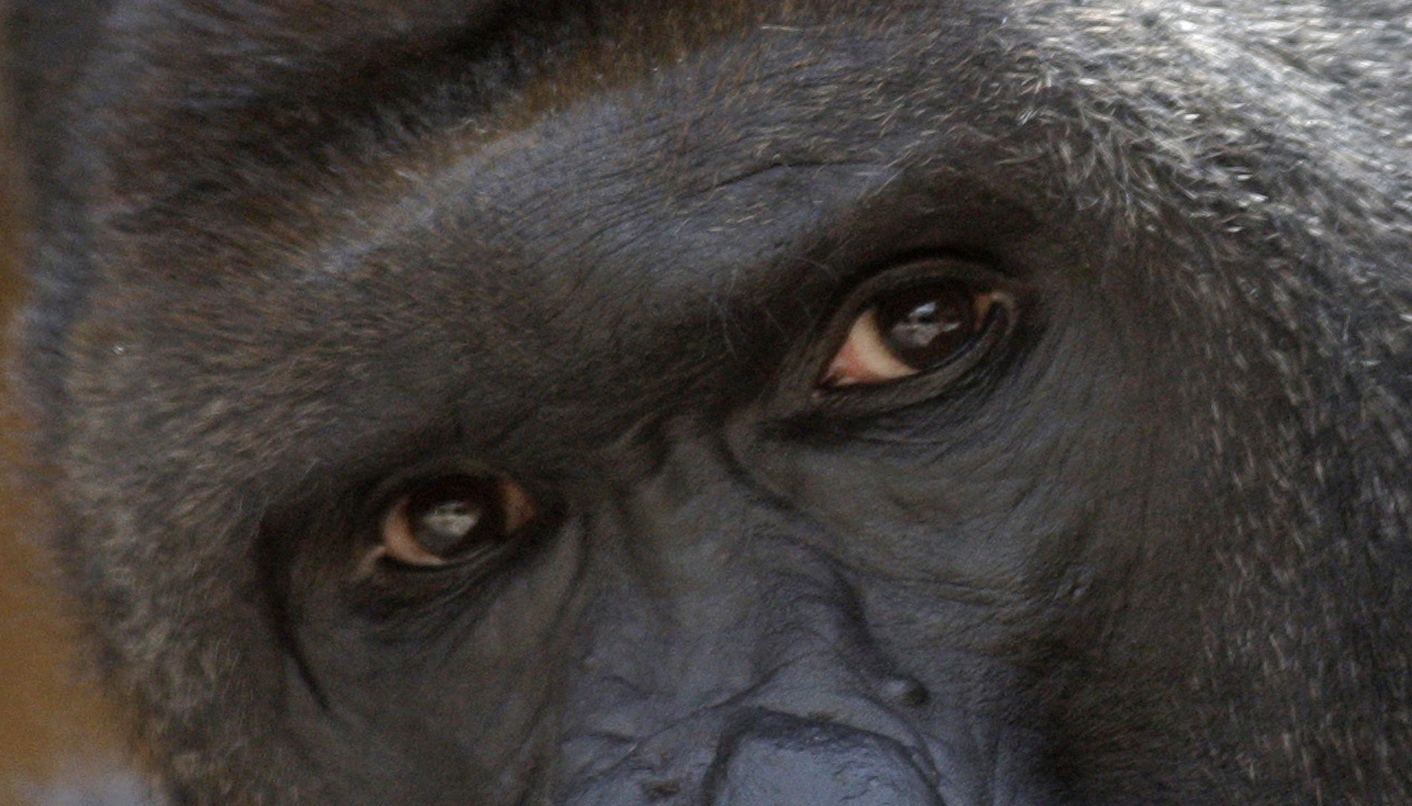Christian theology has traditionally drawn a hard-and-fast line between the beasts of the field on one side and humans and their souls on the other. However, science has become increasingly tentative on that division - more and more placing things on a par where once there were just immutable and stark differences.
First it was man’s monopoly with tools, which has been overthrown by chimps using ant-fishing twigs and rocks to break open nuts and even crows doing something similar. More recently still, there have been scientific mutterings about animal empathy. And now, there is even speculation about the possibilities of other-than-human consciousness. Of course, anybody who has ever owned a Golden Retriever or a Siamese cat, let alone ever having spent time with dolphins, probably has strong ideas about this already.
Without going into the details of this most recent attack by chimpanzees on a human, this newest victim was talking to tourists about the work of the rehab centre when he apparently entered the border space between human and chimp worlds and between two sets of fencing. Two chimps grabbed at him, caught him and then dragged him into their inner enclosure where they bit and tore into his body enough to put him on the critical list. And these are chimps supposedly familiar with humans and on the road to recovery from some other, earlier mistreatment – by humans.
One’s instant, entirely appropriate reaction must be to empathise fully with the grievously wounded man and his deeply traumatised family. But a different question lingers out there somewhere too. Seen in a broader ambit, who, or what, actually, has been the most victimised in this? Consider two other incidents. Several years ago, in a tabloid-friendly event, a woman in the American state of Connecticut was forced to undergo unprecedented, full-face transplant surgery after being savagely attacked by a chimpanzee that had been raised as an exotic pet by that woman’s friend – in her house. And this chimp had actually been well acquainted for years with the very woman he suddenly attacked.
And now there is the orangutan in an Indonesian zoo being forced to go “cold turkey” by giving up cigarettes for his health. Presumably his favourite brand was the clove-scented version favoured by Indonesians – and he had actually been raised within a family of other orangutans who also chain-smoked. Perhaps it was the sweet, pungent scent of those kretek cigarettes that attracted them to the habit – zoo-goers, after all, have been in the habit of flicking lit cigarettes into the animals’ enclosure. The primates just got hooked on an unhealthy human habit. To make the irony texture complete, the very name for this primate, the “orangutan”, is the Indonesian word for “the man of the forest” – certainly not “the animal of the forest”.
The film The Rise of the Planet of the Apes was released last year as a prequel to the film saga inspired by Pierre Boule’s cautionary novel. For some, it has been easy to categorise the latest film as simply one more of those CGI-heavy, science-fiction flicks devoid of any deeper substance. But that would miss a key element of its deeper content. In this film, men have cruelly mistreated one special chimpanzee, Caesar by name, during his life - but he is also endowed with real powers of reasoning and logic. Caesar leads a full-blown primates’ revolt from within the perimeter of their cage against the very humans that have oppressed, teased and imprisoned them for so long. In this tale lurk the shadows of Dr Frankenstein’s “modern Prometheus” or Shakespeare’s Caliban, who rails against the occupying Prospero – or even Karel Capek’s gentle, giant salamanders who serve men and are tormented by them in his dark and prescient novel of the 1930s, War with the Newts.
Humans help lift these creatures outside the animal world where a million years of instincts and understandings prevail, but then they are denied full membership in humanity and they rebel – or would like to. So it seems to have been with the chimpanzees in these famous cases. They are dragooned into a society they cannot quite understand, treated inside a person’s home like a very smart (and large, powerful) poodle. That is, until fear and fury break through and they strike out at the person nearest to them. Or, perhaps they were abused in unspeakable ways until they were rescued and placed in a rehabilitation centre to work things out for themselves.
Still, the fears and anger at what they must have endured must still linger on in unfathomable ways in simian psyches. And here, perhaps, is the core of it. Their inner enclosure or some spot in that suburban household had become a safe territory they were in control of, but now they were confronted with that elemental choice of fight or flee – and so in these instances they chose to fight, their metaphorical backs against the wall.
For many years, a scientific conceit was that the primate closest to humans in biological, evolutionary terms – the chimpanzee – was unlike humans in one big and elemental way. Violence against fellow primates was a human behaviour rather than a simian one - a primate’s version of the slogan: “make love not war”.
But recent studies have shown that apes do actually make war upon their own kind – and sometimes even kill one another - in struggles over resources and territory. And so it seems that they and we are uncomfortably like each other in this behavioural way after all – in addition to sharing 95% of our respective DNA.
Is it really such a surprise, then, that we now watch as human bands face off over the dignity of the president or depictions of his body? The groups bare their teeth, they growl, they howl, they threaten legal actions and marches, they snarl the freedom of expression clauses of the Constitution – all in an effort to invoke that same fight or flight reflex. Maybe we are not so different after all from our genetic cousins. Fortunately, so far, at least, no one, yet, has been forced to undergo life-saving surgery as a result of the struggle over Jacob Zuma’s dignity – and indignities. DM
Photo by Reuters





